CHASING GLOBAL CLIENTS - INTERNAL EPISODE | E010 PODCAST
LISTEN TO THIS EPISODE ON ALL STREAMING SERVICES
INTERNAL EPISODE FROM OSLO, NORWAY
George Stroumboulis sits down for an internal episode in Oslo, Norway with Chris Hartswick to talk about their business on the topic of sales growth, targeting prospects and chasing clients.
George Stroumboulis and Chris Hartswick sit down to talk about chasing global clients and their strategy to date in landing large international brands like Tesla, WeWork, Hilton, Mattel and more for their company, Ideoli Group. They take in the local attractions in Oslo, Norway, including cold plunges and floating saunas by the Fjord, eating at Maaemo Restaurant and visiting job sites where their lighting products are installed in the country. The boys are also cultivating new clients and meeting with local companies with aggressive expansion plans that they are working to partner with. Working with brands in helping them expand from their country to international markets. They are experts in helping them navigate this game and providing custom lighting products.
Ideoli Group: www.ideoli.com
“WHEN VISITING A NEW COUNTRY TO DO BUSINESS IN, MAKE SURE TO STRIP DOWN AND NEUTRALIZE YOUR OPINIONS and POLITICS - CONNECT WITH THEM SOCIALLY, THE BUSINESS WILL FOLLOW.”
MEDIA RELATED TO THE EPISODE
George Stroumboulis sits down with Chris Hartswick at the Oslo Grand Hotel in Oslo, Norway on the Invigorate Your Business Podcast to talk about all things chasing global clients, business expansion and favorite global installation projects.
George Stroumboulis and Chris Hartswick talk about the cold plunge experience in the Oslo Fjord.
Chris Hartswick talks about his favorite international installation projects under ideoli and why they are important.
George Stroumboulis shares his advice on how to connect with international business people in different markets around the world.
ABOUT THE “INVIGORATE YOUR BUSINESS” PODCAST
The Invigorate Your Business with George Stroumboulis podcast features casual conversations and personal interviews with business leaders in their respective fields of expertise. Crossing several industry types and personal backgrounds, George sits down with inspiring people to discuss their business, how they got into that business, their path to the top of their game and the trials and tribulations experienced along the way. We want you to get inspired, motivated, and then apply any advice to your personal and professional lives. If there is at least one piece of advice that resonates with you after listening, then this podcast is a success. New episodes weekly. Stream our show on Spotify, YouTube, Apple, Amazon and all other platforms.
ABOUT GEORGE STROUMBOULIS
George Stroumboulis is an entrepreneur to the core, having launched several ventures across multiple industries and international markets. He has held senior-level positions at progressive companies and government institutions, both domestically and internationally, building an extensive portfolio of business know-how over the years and driving profit-generating results. George’s ability to drive real change has landed him in several media outlets, including the front page of the Wall Street Journal. George was born in Toronto, Canada to his Greek immigrant parents. Family first. Flying over 300,000 miles a year around the world puts into perspective how important family is to George’s mental and emotional development. With all this travel to global destinations, the longest he stays even in the most far-out destination is 3 days or less - a personal rule he lives by to make sure he is present and involved in family life with his wife and three daughters. To read about George’s global travels, stay connected with his blog section.
STAY CONNECTED WITH GEORGE STROUMBOULIS
STREAM & LISTEN TO THE PODCAST:
SPOTIFY: https://open.spotify.com/show/1rW2CmxQoiJNEPOZupJlvd
YOUTUBE: https://www.youtube.com/user/Stroumboulis
APPLE iTUNES: https://podcasts.apple.com/us/podcast/invigorate-your-business-with-george-stroumboulis/id1607693240
AMAZON MUSIC: https://music.amazon.com/podcasts/8fc03929-71b3-483a-a64e-153e30b3d462/invigorate-your-business-with-george-stroumboulis
iHEARTRADIO: https://www.iheart.com/podcast/269-invigorate-your-business-w-92187370/
STROUMBOULIS SITE: https://www.stroumboulis.com/podcast
PODCAST SITE: http://www.invigorateyourbusiness.com
OTHER SERVICES: GOOGLE, PANDORA, OVERCAST, CASTRO, CASTBOX, PODFRIEND, PLAYER.FM, PODCASTADDICT, PODCHASER, PODCASTINDEX and RSS FEED.
FOLLOW GEORGE STROUMBOULIS:
INSTAGRAM: https://www.instagram.com/georgestroumboulis/
YOUTUBE: https://www.youtube.com/user/Stroumboulis
LINKEDIN: https://www.linkedin.com/in/Stroumboulis/
TWITTER: https://twitter.com/Stroumboulis
FACEBOOK: https://www.facebook.com/georgestroumboulis
TIKTOK: https://www.tiktok.com/@georgestroumboulis
CONTACT GEORGE DIRECTLY: https://www.stroumboulis.com/connect
FULL SHOW TRANSCRIPT
George Stroumboulis: There's always options. Clients always have options. So we always want to show them, hey, this is what you need.
Chris Hartswick: Sure.
George Stroumboulis: And this is why we're really good at what we do. Alright, guys. On today's episode of Invigorate Your Business with George Stroumboulis, we're doing an internal episode. Chris Hartswick is here joining me in Unreal Oslo, Norway. We are here on business. We're here for a very short period of time, meeting with existing clients and actually new potential clients. And we are cramming it all in. We're seeing a lot in the city. As much as we could see in the 36 hour period, we're doing ice plunge dips. We're doing floating saunas. We're checking out local cuisine. We're seeing some touristy stuff in between meetings, checking out some amazing restaurants and just having an ultimate time. So, on this episode of the podcast, we're talking about internal business on how to chase global clients', global business. Speaking from our experience from day one when we founded the company right up until today, and what we've been doing around the world. Perfect example here in Oslo. How are we cultivating that business? How are we preparing before we even leave from back home in the United States and really creating those relationships? Enjoy this episode. And comment below and stay connected with us. Thank you. My name is George Trumbo and I'm extremely passionate about traveling the world, meeting new people, and learning about new businesses. Join me, as I sit down with other entrepreneurs to learn about their journeys. This episode of Invigorate Your Business starts now. So we're in Oslo, Norway. First time we've been here professionally, personally. We got in late last night. We're leaving tomorrow morning.
Chris Hartswick: Yep.
George Stroumboulis: And we've been bouncing around meetings, but first 10 hours in Oslo. Well, what's your takeaway away so far? What do you like? What have you seen?
Chris Hartswick: I mean, it seems pretty awesome. Obviously the architecture and things like that. It's very sort of that Nordic vibe. You see it all over the place, but it also seems to have gone through a lot of changes, right? Just the construction that's been going on. Even talking with a few of the people that we've met here since we've been here, it's like within the last four or five years, this entire area by the waterfront is just brand new. Right? But they do the construction in a way that sort of makes it feel like it has been here for a while as well. So it's just seems very nice. People seem great.
George Stroumboulis: It's been cool. We've done, we've always been doing this, right. And today we're going to talk about chasing global clients, right? Chasing clients, but globally. But we always have done this for, as long as we've had this company is every opportunity we get for a new destination for meetings, we try to tie in, you know, what's the local cuisine? What's the local activity? And we package it in and we get to experience the city.
Chris Hartswick: Sure.
George Stroumboulis: No different here. Right? We got in late last night, this morning. What did we do?
Chris Hartswick: Yeah. I mean, crazy. But down by the Fjord.
George Stroumboulis: Fjord.
Chris Hartswick: Yeah. Fjord. We went into the, I don't know what you want to call it, but the sauna, polar plunge.
George Stroumboulis: Floating saunas.
Chris Hartswick: Yeah. Floating sauna right on the edge of the docks, you know, docked at the docks and crazy.
George Stroumboulis: Yeah.
Chris Hartswick: Had to break the ice to get in the water, and…
George Stroumboulis: Dude, that was a little, and after this, we're going to cut and show some of the footage from today. That was the craziest thing. Because I've been following this now for a good two weeks. And there's basically daily cameras where you see, and today it was proper ice sheet across. And what would you say about a meter diameter to jump in.
Chris Hartswick: Yeah. But I mean, even, it's so cold out there, even from, so we went in twice, right. Went into the water twice, even from the time we went in the first time. Went back in the sauna, went back in the second time. It already started the freeze over. Like that first step in, you were breaking through ice again.
George Stroumboulis: Yeah. Did you put your head under today?
Chris Hartswick: No.
George Stroumboulis: Okay.
Chris Hartswick: No, I went just under the chin was.
George Stroumboulis: Yeah.
Chris Hartswick: Close as I got.
George Stroumboulis: When I went in, I had this fear of like, alright, if I go too far out, is there going to be a sheet of ice above me? So I did the like, little head dip and…
Chris Hartswick: Yeah.
George Stroumboulis: It was insane. Do you do this back home? Do you do the cold plunges at all?
Chris Hartswick: No. I've never have. You know, I like in general cold things, like, I'll take a cold shower every now and again and things like that. But never, never anything like this.
George Stroumboulis: Would you like, so let's talk health benefits, right? We read a lot about, again, you see on social media, you read the benefits, dopamines increase blood flow, you know, what are some of the other ones? Reduces…
Chris Hartswick: Inflammation.
George Stroumboulis: Inflammation.
Chris Hartswick: Yeah.
George Stroumboulis: So it's great, but like back home to do that on the daily, you know, I've started doing it a few times a week when I get a chance, but if I had a proper, I don't know, barrel in the backyard, I feel like I would do it more.
Chris Hartswick: Yeah. I mean, I think the biggest thing there is just access, right? Like, the cool thing, taking away all the craziness of sitting in however hot that sauna was, like hard to breathe. It's so hot. And then you're jumping through the ice into the ocean, essentially.
George Stroumboulis: Right.
Chris Hartswick: Which makes it double hard to breathe when you're doing that. Take that away. It was crazy to see how much of a culture or how much this was just a part of their culture, right? Like, it's Tuesday, we went there at nine o'clock on a workday.
George Stroumboulis: Right.
Chris Hartswick: There's no holiday, there's no nothing. And as we're walking up, we were like, ah, there's not going to be anybody here. The place was packed.
George Stroumboulis: Packed.
Chris Hartswick: And mostly locals.
George Stroumboulis: Yeah.
Chris Hartswick: Yeah. We were the only tourists that were there.
George Stroumboulis: Yep.
Chris Hartswick: Which is just like, you know, speaks a lot to how much they put towards their health and how much things like this are just a part of their daily regimen, but…
George Stroumboulis: Yeah, absolutely.
Chris Hartswick: You know, at home, I wouldn't even know that exact type of thing. I wouldn't even know where to go. Right? Like, yeah, you go to some gyms, you find a sauna or whatever, but being able to do that and then go into any type of ice bath. Like, that's not, I wouldn't even know where to find that.
George Stroumboulis: Well, and then back home, it's for-profit, you got to go to private clubs, you got to do this. This is a non-profit. They're building this, you know, floating saunas, and you basically pay donations and you have access to this, and then it's freezing. Like the marketing of this is incredible. Right? They're probably sitting there, hey, what do you do in Oslo in the wintertime? Not much. You know what? We're going to start attracting tourists and locals to jump in the frozen water. And it's a bucket list. Like, I was excited to do this.
Chris Hartswick: Totally. Totally. Well, and then like, if you think about it too, you would never actually be allowed to do this commercially, exactly what they had. Non-for-profit, you know, Oslo Capital, big city for Norway, right?
George Stroumboulis: Sure.
Chris Hartswick: But you would never be allowed to do that. We were sitting in a wooden box on a wooden floating dock with a wood burning fireplace in it.
George Stroumboulis: Right. What makes sense? I mean, if there's a fire, you're in the water, it's going to…
Chris Hartswick: But you're sitting in the wood. Right? The whole place could go up.
George Stroumboulis: Yeah.
Chris Hartswick: Right? And then, oh, well, how do they feed it? They don't. You do. There's a box of wood outside and it's like, alright, I guess I want it hotter. Let me go get some more logs. Let me throw it in like…
George Stroumboulis: Liabilities on us.
Chris Hartswick: Yeah.
George Stroumboulis: Yeah.
Chris Hartswick: But that's just kind of the thing, right? Like here, oh no, it's I'm doing this for my health. I'm doing this for this. You don't have to worry, I guess.
George Stroumboulis: Yeah.
Chris Hartswick: About, you know, some nut job coming in, cause a problem or lock the sauna on you and you're stuck in the, it's just like, oh yeah. Casually let me come and go and jump in the water and head right back home.
George Stroumboulis: Head back home.
Chris Hartswick: Work. It's crazy.
George Stroumboulis: Dude, I saw the older woman, she's just getting in there, climbing in, no problem. Goes into the water.
Chris Hartswick: Splash out of it.
George Stroumboulis: Right? Like she was in a hot beach in the Mediterranean. And then she gets out and, you know.
Chris Hartswick: Crazy and then packs up, puts her robe on, and just walks back.
George Stroumboulis: Walks back. Yeah.
Chris Hartswick: Okay.
George Stroumboulis: By the way, it's zero degrees today. It's zero degrees Celsius. 33 Fahrenheit.
Chris Hartswick: Snowing right now.
George Stroumboulis: Snowing. Like, it's cold.
Chris Hartswick: Crazy.
George Stroumboulis: It was awesome. It rejuvenates we're good. Just got back to, we're staying at the Grand Oslo Hotel, the Grand Hotel Oslo, which is a landmark here in Oslo. The Nobel Peace Prize offices are I think across.
Chris Hartswick: Five minute walk.
George Stroumboulis: Five minute walk. But they actually announced winners out of this hotel as well. So it's just, it's a great place in the lobby. Was just now met someone's kid that I know from Greece who came up in the lobby. It's just, it's a cool place to be. It's a central point. And then after we shoot this pod, we're going to go get ready and then we have meetings the rest of the day.
Chris Hartswick: Yeah.
George Stroumboulis: So good segue into that. And why are we here in Oslo? We're chasing global clients, global opportunities.
Chris Hartswick: Yeah. And I think it really, you know, comes down to when you think about what kind of little niches we've been, I'm going to say fortunate enough, but also skilled enough to sort of carve out for ourselves. Right? And one of them has been helping foreign brands make their way into the US market.
George Stroumboulis: Absolutely.
Chris Hartswick: Whatever that is. And one of the places we've been most successful at that is in that high-end hospitality, that themed restaurant, upscale bars and things like that. We did it first out of the UK. We were doing it out of other parts of Europe. And now we've identified a client that we are already working on, kind of fell into it to a certain extent, but already working on the first location in the US and randomly just kind of casually reached out to them and said, hey, you know, we're your supplier here. We'd love to show you what we can do. This is what we've done for other brands from other countries, and helping them get into the US market. And instantly they just gravitated towards that. Absolutely. If you're going to be anywhere here, let us know. We'll make sure we have time for you. And what from first contact to now, two and a half, three weeks.
George Stroumboulis: Yeah.
Chris Hartswick: It was very fast. Like the amount of speed they gravitated towards what we were offering was very motivating.
George Stroumboulis: Yeah. And not easy to achieve. Right? Like that first contact in the States on, hey, can you guys quote these products and whatever. Great. But then having the drive and the hunger to say, okay, where are you based? Oh, we're in Norway. Great. Can we meet? Well, we're in Norway. Kind of like, you guys are over there. We're here. And then, we had other meetings in Europe that we're going to be doing this trip. And it's like, hey, we're going to be in Norway. Oh, what are you doing here? We have meetings. Right? Because a lot of the times I find when people get invitations on the client side, it’s like don't just come here for me sometimes, right?
Chris Hartswick: Sure. Yeah.
George Stroumboulis: It's like, no, no, we're going to be there, but no, we are only coming for you and it's a better message we're in person later. No, we came here for you. That's how important this opportunity is. So once that was established, we're spending the day with our clients, now our new clients, and we're touring several of their locations. Understanding what they're doing. And they're looking to expand across the US, across the UK and across Australia with these several concepts. So being able to be here, really see what they're doing before they start franchising it. That's what we do. You can't do that via Zoom. You can't do it via phone calls. So us being here, owners of the company showing that we care, right? Because time is precious.
Chris Hartswick: Absolutely.
George Stroumboulis: And we're traveling and we're making it happen, and we're here for a day. It's exciting. That's what we've been doing from day one when we launched this thing.
Chris Hartswick: Right. Well, and the other part that's really exciting as well is it's not just a cold call meet and greet. Right? We've already done one location, or we're in the process of shipping the first location. They've already seen our process to a certain extent, but now it's…
George Stroumboulis: We blew their mind with our process.
Chris Hartswick: Right. But now it's not only get to know us more, but let us get to know you more. Right. Because today we're not just sitting in a conference room, we're doing a walkthrough of their location so we can see the finished product, we can talk to their entire design team about what it is, like, how they rate their own success, right. What they deem successful in their own locations. And then two, having essentially a design charrette sit down with their team, basically mapping out the next 2, 3, 4, 5 locations, whatever, you know, actually gets off the ground this year. So that way we can know firsthand from them, from their design team that we're delivering exactly what they're looking for. It's invaluable.
George Stroumboulis: Yeah. And we're doing it in January. Right? So we're able to map out the year with them, show them why, where their partner. And it doesn't matter, Oslo, you know, we came here, we're prepared, we're doing local stuff to understand its good conversation points. So like, some advice, if you're going to go to a country and meet with a client there, don't just come in as that culture, hey, the Americans are here, we're doing this. It's, yeah, we're American. Right? But guess what, we also did this local thing, so now we could talk about that. Like we're creating that connection. It's a nice breaker. You know, we're going to one of the top 50 restaurants tonight for dinner, excited to see that. Three star, Michelin star, not because we're trying to go out and be fancy and spend money, but it's like very well known here. Well, let's experience that. Let's experience it with our partners, you know, and just build that relationship.
Chris Hartswick: Absolutely.
George Stroumboulis: As we go. So over the years, we've had so many different international type clients that originally started in the States and we grew internationally. Now we're also doing the opposite, bringing international to the US. You know, to date, what's been the most notable in your mind of when you first realized like, man, we are international. Like, is there a project or a client that's something really resonated and I could kind of throw my anchor to get the conversation going?
Chris Hartswick: Yeah. I mean, do you want to name specifics or…?
George Stroumboulis: Yeah, let's name,
Chris Hartswick: I think the biggest thing for me was really when we got down with the entire Puchak Flight Club, Electric Shuffle group. Right? Because we were talking with the parent company. We got involved with the designers from the parent company and all at once, we did a single location. They were so impressed that they literally opened up their entire portfolio and said, this is everything we do. This is everything we offer. Such different, you know, one's DMX controlled, the other one's color changing, the other one's this, the other, each one had such very specific different requirements, but they immediately knew, or at least had the confidence that we would be able to deliver on all of them. So they opened up the whole thing and said, we need your help. Right? It's not, I'm just putting this out the bid and I'm going to get 20 different people that have a similar product. It's, we are trying to deliver a custom experience on our own. Right? And in order to achieve that, we need your help on figuring out how to do this custom lighting.
George Stroumboulis: Yeah. And it's not just making a decorative fixture and shipping this.
Chris Hartswick: Exactly.
George Stroumboulis: Like it's not several partners can do that, you know, and shout out by the way, Villa lighting Lucas as well.
Chris Hartswick: Absolutely.
George Stroumboulis: For facilitating that, but working with them, and especially, you know, this particular group is based in the United Kingdom, very incredible design eye. Right? They know what they like, they know what works over here. Now doing that in the states, like from the materials, the aesthetics, the performance, and then being able to control it because it is a high tech social gaming brand. Right? When they're throwing the darts at the board, it's not just a dart, it's measuring the speed, it's measuring where it is, and it’s translating it up to the screen. We're involved in that step. You can't just find that online and partner with someone to support that.
Chris Hartswick: Exactly. And, you know, that includes the troubleshooting, right. Because as you said, it's not just even does your product work with X controller, it's, well, now we have this fully integrated system with high speed cameras, and the high speed camera then needs a relay to send the signal to this, to send a signal to that. And making sure that there's no specific testing you can just do. Right? Or off the shelf and be like, oh, we're high speed camera certified. Right? It's you, you have to check your boxes, but then you have to sit there and do mockups, make sure that it's actually functioning properly. And then roll it out nationally, internationally. It's wild.
George Stroumboulis: Well, we talk about the dark company, even when it comes to the individual modules and doing DMX control. Like it's not just, oh, they're on and off. It's too music. You know, like, just talk about the high level tech side on what's involved on even programming, you know thousands of modules across several locations.
Chris Hartswick: Yeah. I mean, for that specific one, it's very small little cabochon lights, like you'd see historically at a carnival or something like that. But making sure each one has its own unique address that can be identified. And then helping lay out the entire, you know, DMX universe, multiple universes needed because of how many modules there are. Like you said, bounce to the music while the music's playing, respond to whatever the high speed camera, you hit a bullseye, the whole thing goes crazy to celebrate, you know, the bullseye that just got thrown. It's not just about what the light fixture does, but it's that servicing and working with Villa and their controls team and the other controls people involved to make sure that it's all actually talking correctly. Is wild.
George Stroumboulis: Have you been to the latest Vegas one yet?
Chris Hartswick: No.
George Stroumboulis: Yeah. That one's spectacular. We got to plan a trip out there.
Chris Hartswick: Yeah.
George Stroumboulis: So that's what we do. For me, like the first project that we did that just really showed, wow, we can do this, and I hate the cliché, fake it till you make it, but we did for this client that I'm about to mention was Mattel and American girl. Not fake it from, domestically we did the beautiful chandelier. It was a great showcase. Rockefeller Center in New York, fine. But we had direct access. Again, Regency, Cameron got us in there to show what we can do. But after doing that, working directly with the people from Mattel, the world's largest toy manufacturer. Right? And then they're brand American girl, and then the designer’s FCH. And in showing what we could do, we absolutely blew their mind. We made this an easy process. Right? The installation, working with local electricians, driving out tremendous amount, probably 60% of cost. Right? Value engineering it to get it to that design. That installs now five, six years later. Still looks amazing. I was there last month with my girls. You've taken your girls several times. But for Mattel, right? That's like, it's a household name to then say, huh, you know, let's use this team and do a scale down version across the Middle East. Up until that point, we did nothing in the Middle East. We did some restaurant chains on the furniture side. But then we're like, yeah, we can absolutely do it certify. And then that's where, if you're good and passionate about it, you're going to find the answer. Okay, what do we need for local certification? What do we need for the electricians? What do we need from an installation standpoint?
Chris Hartswick: Even logistically, how are we actually going to get it into the country?
George Stroumboulis: Get it in there. How does that look? And then going out there and doing sales calls like we're doing now in a matter of two days, I went to Dubai, Abu Dhabi, Saudi Arabia, Bahrain, and I'm missing on. And we toured the stores, right. On where they're going in and seeing, you know, American girl brand, this dolls in the Middle East. It was just crazy. And then knowing we were the focal lighting point, when people come in, it's the lighting in the dolls. For me that was like, this is truly international. Like we came, you know, we didn't go from the US to a Canada where it's Western or to like a UK. It's the Middle East. So when we were able to do that, and some of those countries were not impossible, but challenging when it came to certifications and logistics and the Wild West over there, we were able to achieve it. That for me was like, wow, we're really good at what we can do. What else can we do?
Chris Hartswick: Absolutely. Well, and the thing too is, if you really stop and just think about what's involved in all that, right? Because even say certifications, what's involved in the certification for countries in the Middle East?
George Stroumboulis: And when you say certification, you mean of the actual product lighting certification.
Chris Hartswick: Right. Of the actual product. But it's not, you know, oftentimes even internally when we speak about it, it's almost way oversimplifying it of, oh, we're just going to fill out some new paperwork and we're going to certify it in the country. You can't just do that. They have such different electrical requirements that now you're changing the entire electronics of the fixture, which means you're building a whole new fixture. It physically looks the same, but now you have to re-engineer, you have to redo all of the electronics. And because you're changing the electronics, frequently you have to change the LEDs that are involved because you need a different type of LED to work with the different type of electronics. And so you're redoing the exact same product over and over again for all of these multiple countries.
George Stroumboulis: And smaller projects.
Chris Hartswick: Right. In order to get that certification.
George Stroumboulis: So why do you think we're so good at being able to do that versus a large conglomerate of a manufacturer where, you know, by the time they move and steer the ship, it could be nine, 12 months and most of them won't even do that. Versus we're nimble and able to do that. Like, where do you think without giving away our secret sauce?
Chris Hartswick: Sure. I mean, to be honest, I think a lot of it is just focus and willing to do it. Right? Because there's no expertise or knowledge that we have that a massive company doesn't have. But in order to turn the entire R&D department to focus on this one thing, to get it done as quickly as possible, so that way the lead times for the most part are essentially the same as a typical lead time for a product we deliver in the US. You know, to really direct that focus for that period of time to get it done, to impress the client, and ultimately the willingness to do that. I think that's the trouble, right? For other companies, that's where we excel. It's like, okay, we can put this other stuff on hold for five days, focus on this, and we know if we have our entire team working on one initiative to get that solved in five days, we'll have enough to where we can start filing the paperwork, start doing this. And then we can, you know, develop it as we're going. So just that nimbleness, like you said, to be able to redirect our focus and then quickly jump back. So whatever we were working on doesn't get lost and now we're not falling behind the ball. I think that's really the success of what we're able to do.
George Stroumboulis: Well, and from day one, when we launched the company, it's always been international, international from like our employees and associates, international from the clients. And we made business decisions early on pass along, even lose money on specific orders, just so we're able to use that as an example. Right? And early on you can do that and say, hey, you know what? We've done the Middle East, we've done Latin America, we've done South Africa, we've done Europe, we've done Southeast Asia, we've done Russia.
Chris Hartswick: Right.
George Stroumboulis: And we can honestly say that we're in over 30 countries around the world. It's incredible. But we wouldn't be able to do that if we didn't do the first few and sacrificed resources and time, time away from our families to build this to where it is. So that was one of the projects that was just wow, we get it. Shifting a little, you're talking about the big one that made us truly global with We Work.
Chris Hartswick: Yeah.
George Stroumboulis: Right. That again, we could go down so many different avenues on what we want to talk about that, but that was an example of an account that we stepped in with corporate in New York City, introduced from Laura, from WB. Great. Fine. Thank you. We were part of a dozen different manufacturers competing for this, for a pretty standard looking type product.
Chris Hartswick: Hundred percent.
George Stroumboulis: But they had requirements on design, aesthetics, performance, and most importantly cost and probably most importantly ability to adapt to different markets. Right?
Chris Hartswick: Right.
George Stroumboulis: So what we were able to do and to sit there in meetings that we were going in over half a dozen meetings prototyping this, that getting there and getting them that price point. When they flipped the switch and they were ready to go, we're producing 10,000 units every 60 days, fine, shipping to every corner of the world because they were just exploding before they imploded. Different conversation. But we were shipping it everywhere. And even today to the job sites we're going to go see are here in Oslo, two We Work locations, that 80% of that footprint of every location is our product, ideally. But if that's not just cool feeling, right. I don't know what is, but we're in every market. That was a great account getting us there. And that we've been able to piggyback as well to further expand and have these meetings with, you know, these developers and other architects around the world.
Chris Hartswick: Absolutely. Well, and even again, it's beyond just the product itself. It's the servicing and really everything we bring to the table from the design aspect. Right? So we were working with, we work with HQ in New York, developed this fixture. Great. But then as we're going through these local markets, again, it's not just a matter of re-certification, it’s okay, well, London specifically requires a different type of mount for a J Box. Right? That all of a sudden comes up out of nowhere. It wasn't on any money's radar, it wasn't on We Work’s radar, not on ours. We're supposed to be delivering product in a month. And now we have this challenge out of nowhere. So now we got to determine and solve this entirely new completely unexpected mounting requirement and do it without causing a delay for installation. Because they're opening locations.
George Stroumboulis: Well and potentially hundreds of thousands of dollars that we would lose because of excess product.
Chris Hartswick: But the fact that again, the confidence we're able to earn, because it really does feel earned, the confidence we're able to earn from our clients. In that exact example, We Work HQ, design team was like, you know what, and you talked directly with the UK design team, not even the European design team. You go directly to the UK team. We were over, you know, three days later we were in London for a meeting, talking with them, talking with the contractors, doing the installation, making sure we understood exactly what was needed. Coming up with prototypes within a week after that. And then, you know…
George Stroumboulis: Rolling it out.
Chris Hartswick: Going into production, updating certifications. Again, the level and the quickness we're able to respond to the client's needs is really I think what makes us so successful.
George Stroumboulis: Yeah. And it comes from the top down. Like our entire team is on board and supports us. Yeah. Like they're really, they're special individuals as humans, but as a team, because we stress on how important this is, everybody embodies that. We work specifically was an international campaign on steroids. Right? In a matter of like, if you put it all back to back, like weekend trips and all this in like three weeks I was in Argentina, India, Singapore, Dubai, London, and I'm saying all these locations, because every region had their own lighting lead that you essentially had to reintroduce and sell to them. Right? And explain what their requirements are. So in the end, we were going back to HQ giving them a report on, hey, this is what your lighting requirements are from what we see from the markets. Right? Does this align with what you're seeing? Right? And we're giving everything on a platter from where we see. And our clients saw tremendous value in that.
Chris Hartswick: Of course.
George Stroumboulis: Because then they're saying, wow, like, who else is flying around the world? It's not around the states. And you're going to different states. We're talking global travel and we're on the ground for half a day, a day, back on a plane and just making it work. And in the end it helped because that to service that account and our fixture to be 80% of the entire package is a big deal. Right?
Chris Hartswick: Of course.
George Stroumboulis: And it was a big deal for us. We were able to catapult and just skyrocket with our sales. Right. And credibility in the market. And being able to travel to over 30 countries around the world and say, hey, our product is in this country. Right? And it's not a consumer product.
Chris Hartswick: Right. Well, and like you said, providing reports to HQ for things that they didn't even know. Right? Because during all those trips, during all those, you know, quick, let me just touch down and go through this. We're doing full site audits and we're going back to them saying, hey, by the way, you do realize that your mounting heights here are different, so now we have to change your optical distribution. Or hey, just so you know, everything else in this space is a different color temperature. We should probably change the color temperature so it all matches. And we're not conflicting, you know, coming up with these identifications of their own spaces that they just don't have the bandwidth to know every little detail of submitting those reports. And just ultimately having the customer say, yeah, you're right. Run with it. You know, we trust you. You do what's needed.
George Stroumboulis: And it was the perfect time because they were experiencing explosive growth. Like it wasn't normal, how they were just firing on all cylinders and we just kind of stepped in and then the upselling like, hey, we're at these locations, can we look at the decorative package? Right? Like, there was still 20% left on the table.
Chris Hartswick: Sure.
George Stroumboulis: Can we take another five, 10% and pushing and trying to, you know, every market was different. But being able to recognize that as well.
Chris Hartswick: Absolutely.
George Stroumboulis: Yeah. So when we look at everything, you know, here's just some other advice, right. Everyone's traveling, everyone's doing something. And we do a great job of this. I love maximizing every minute that we're on the ground. Right? It's, hey, we're going to be here. What can we do? Okay. Socially, let's carve out two hours so we can do an activity, that’s great for us. Because we don't get a lot of FaceTime like we used to bond, we nag about whatever we need to nag about, catch up, strategize, we need that. So we have that aspect. Then it's like the actual business side of it. Who are we meeting? What's our agenda? What do we hope to get out of this meeting? Right? We we're always good at planning, right. Because we want to come out of there and say, okay, these are the next steps. Not, alright, we'll see where it goes. Right? Like, we have to drive it because there's always options. Clients always have options. So we always want to show them, hey, this is what you need. And this is why we're really good at what we do. So we come out from that aspect. And then the other thing is, are there other people we could try to meet even for this trip, you know, I was working with the marketing team, try to get architects, like just cold call. We have a three hour window where instead of just doing nothing, let's try to set up other meetings with potential architects, developers. And we were working on that two weeks in advance to set that up as well. So in a 12, 14 hour day, one full day that we're here, everything's maximized until 9:30 PM tonight. Right? So being able to do that is really big. And it's no different, even back home if you're in New York and you're going to St. Louis for a meeting, it's like, great, I'm going to meet this distributor for this project, but you know what, let me try to meet this lighting designer and this one before I get back on a plane.
Chris Hartswick: Right. Well, and I think that you mentioned it as well, but that really speaks to the marketing department, right? Marketing isn't just let's make sure our spec sheets look nice and post a couple things on social media. Right? It's the amount of time we spend really trying to know our clients and not just know our clients, but who are our clients' clients and who's involved in it. Right. Okay.
George Stroumboulis: What are their financial?
Chris Hartswick: Right. We're meeting with one restaurant group. Okay, well, who's their main outside architect? Who's their main outside lighting designer? Who's their parent company, does their parent company own anybody else? All of that research is done by our marketing team and basically is done from the moment we have them as a client. So we know next time we're in Europe because we got to go meet a client in Barcelona. You know what? We can actually jump up to Oslo pretty quickly. Go meet another client. Well, since we're going to be in Oslo for a day, oh actually we can meet this other architect that's up there working on a different client. You know, it's the ability to have all that is because of that research and the effort that we put in before we even get on the road.
George Stroumboulis: Yeah. You have to condition your brain, so it becomes like muscle memory.
Chris Hartswick: Exactly.
George Stroumboulis: Where its second nature. It's not like going Oslo have a one hour meeting. You wouldn't be here if it didn't make sense. Well, obviously it makes sense, we're here with that partner, but its muscle memory. Okay. What else can we do?
Chris Hartswick: Exactly.
George Stroumboulis: I get emotional talking about this here, Chris.
Chris Hartswick: Makes sense. But you're right. It's, you know, it's too easy to kind of just say, alright, I got a meeting. I'll fly in the day before, I'll just kind of hang out in the hotel and whatever, order room service and watch a movie and then you know, have my meeting and then, ah, I don't want to rush out of there. So I'll stay another night and then go home. Right? So you spend three days, you have one client meeting and maybe it works for some, but the ability, every new person we can meet, every new person we can get in front of. It just, it makes it that much more successful on setting up the pipeline.
George Stroumboulis: And you can always learn something from someone, right? Like a Perfect example, last night get in, I got in a week before I'm looking at Oslo's startup scene. What young entrepreneurs, what are they building? Like I love seeing that stuff, right. Come across this spectacular graffiti artist. The cold plunge rocked me right now.
Chris Hartswick: Yeah. It's okay.
George Stroumboulis: So meet this guy, do a little podcast. We discuss, he's building a studio. He's a big deal here in Oslo. Okay. The studio, can we do the lighting? It would be great to get in, like every interaction can lead to something. I'm not saying make it transactional, like what can I get out of you? But it's, you know, what can I get out of you, what can you get out of me and pass away? We're sitting in the sauna today, randomly we're catching up on life, and we’re enjoying this before we start our day. There's a gentleman there. We start chatting, chit chatting in the sauna. We learned something extremely valuable about the local market and a tool that we can find out more information about different companies, right. That cost us nothing.
Chris Hartswick: Because he works in private equity and he is financing a lot of businesses around here. And it's…
George Stroumboulis: It's magical. And then what do we spent so much time after just geeking out on this tool and seeing, hey, you know, who owns this? Who's doing this? How much profit? And it just, those things really open up our eyes and its like, man, just make the conversation. Because you know, one of the things I, I'm not really big in resolutions, but this year I'll be the first one to chat up anyone anywhere. Fine. But when I get on planes or I'm in the airport, I usually just like to shut down. Just put on my headphones. But this year I've been making it a point, even in the airport, obviously someone traveling for business, they're going somewhere. They have a story. So this year I'm actually trying more to engage versus just kind of tune out. But yeah, it's a balance. But you can always learn something from someone.
Chris Hartswick: Of course. And the importance there too is record it, right. Because not everything is instant. Actually very few things are, right? You meet somebody up, okay, cool guy, whatever, let me get his business card. Again, going into our organization, our process, even our internal process, right? Let's put that in the system, let's record it, let's launch it, so everybody knows that yes, I met this guy and then filter it down by what industry is in, what is he doing. And then when we go to look up, you know, whatever, in nine months, hey, I'm going back to Europe for meetings. What is that? Oh hey, remember that one guy we met in the sauna and this and that? Let's see if he's available for a coffee. Oh, okay. We meet up with him and now this time he's got an idea and you mind if I bring a client of mine so they can meet you, right? It's like having that entire thought process on not just how to maximize the time, but how do we actually record this? Keep record of it so we can easily recall it for the next time that we're traveling. It's huge.
George Stroumboulis: It's absolutely huge. And I mean safe to say we're masters at that process, you know. So another thing just talking about, again, topic today, kind of all over the place, but it's chasing global clients. A lot of it has to do with likability. Right? Business in general. If you like someone, you're more inclined to do business with someone and vice versa. Right? It's that you know, don't be fake. Don't try to, to get someone to love you from the first minute, like unnatural. But specifically when I go to international markets, I try to neutralize, like my viewpoints neutralize certain opinions, right? And just kind of understand where they're at. I'm not saying sit on the fence always, but if you're going to a market and you know, typically they're more socialist, make an example or capitalist. And if you just kind of put your guard down and just kind of step away from that, people are more inclined to feel natural and they don't have these preconceived notions and ah, this person is from here and they're like this. Right? And the minute you do that, you kind of strip everything away and then you start building up. Like, I do that a lot with people and I find you create more of a connection because my opinion's not better or right than theirs and vice versa. So, when you're meeting people in different markets, even from a partner side, even working in Asia and Southeast Asia, what do you do to connect with locals?
Chris Hartswick: I mean it's a great question and again, there's so many different ways you can approach this. My style is, and I've said this a million times, you always yelled at me even in our past lives at other companies, but like, I never consider myself a sales guy. Right? And the main reason for that is I'm not the guy that's going to go in with a pitch. I'm not going to give you my 30 second elevator pitch and I'm going to try to grab you. Right? My approach is more of let me get data, whatever that is, and then let me see if I, how I can use that better. So in terms of meeting new people, potential clients, vendors, whatever that may be, it's literally getting to know them, asking them questions and listening to what they have to say. What problems are they coming into? Right? Ask a couple of right questions. Some of it is more casual, some of it is more, you know, maybe not personal is the right word, but non-business related. And then getting into business and okay, well, what are you looking for? Right? Obviously a very vague question, but getting the questions asked, getting them to start speaking about what they envision, if it's a designer or what they need, if it's an engineer or what they're trying to accomplish, if it's an architect or whatever that may be. And then really understanding that and then giving back how we can bring value to that specific element becomes the pitch. Right? So talking to the designers, trying to come up with this idea and this, and I'm trying to make this work, but I can't really figure it out. Well what if we do that? Right? So a lot of times I prefer the types of meetings like we're going to have today. It's not 40 people in a conference room sitting around a table and I'm going slide to slide, look what else we did. Look what we can do here. It's more of let's walk your space, let's walk through here, what went well and what didn't went well. You know, this is already done, this location's already done. Where did you have your most problems? Where did you guys really struggle when you were getting ready for launch? What was the biggest pain points? And then speaking to like, oh, okay. You know, we've gone through that before. We can solve that in this type of ways and we can offer up these types of solutions. And having that hit home also makes it more, one, it's not just a lecture, right. It's actually a discussion. And the more you can get a client engaged in what you're talking about and actually engaging, asking questions and pointing things out and physically walking through a space with them, for me, that's the most successful thing I can personally have.
George Stroumboulis: Yeah. And you say it, but like even with the standard PowerPoint, you're phenomenal at presenting when you have like, hey, this is what we did at the project because you know the details, you're excellent at presenting, you're even more better or you're just that much better when the problem's presented and you know, hey, this is the issue we're having and then your mind starts working and hey, I'll ask you these 14 questions, so you can give me what I need to work with my team. Solutions based, like absolutely. There's different nuances to it, but that's something that we excel at is just being on site and understanding that anybody can pick up a catalog and pick some fixtures or pick whatever, but it's being able to bring that solution.
Chris Hartswick: Well, and even like, again, it sounds so cliché, but being as transparent and honest with the client as possible. Right? To the extent of they throw out an issue. I don't know the solution, I'm not sure how we're going to do it. You know what? I don't know. I'll flat out tell them, I don't know. I see what you're saying. Give me two days. Let me talk with our team. Let me work with the engineers and let's see what we can come up with, within two days we'll get them back a report. Hey, what about this? Here's 1, 2, 3 different ways we could approach this. Do you think any of these are what you're looking for? And that could be an actual problem, you know, whether it's installation or electronics or even just a design aesthetic. You know, what are you thinking of? Here's one way we could go, here's another way. But being flat out honest with them of, you know what, I don't know, but give me a couple of days and let's see what we can give, you know, present to you. And then when you present it, actually within that timeframe, again, it keeps them engaged over time and the more engaged they are, the more successful it's going to be.
George Stroumboulis: Yeah. And those are the clients we want to work with.
Chris Hartswick: Right.
George Stroumboulis: Right. It's we're going to solve something together and you just don't need a price.
Chris Hartswick: Right. Well, and that's a great point because, you know, one of my favorite videos we've ever done from a social media standpoint is don't be an aisle. Right. And it's true. And it's both ways. We've had clients that just call and hey, what about this? Well, did you think about it this way? No. You know what, I don't want to hear it. I just want to work this way. Okay, well we could do it this way. That's not what I said. Just do it this way. Okay. Then you know what, that's not for us.
George Stroumboulis: Yeah. Give me your price by the end of the day. It's like…
Chris Hartswick: Yeah. You don't have to put your, its just going to create so much more stress and it's…
George Stroumboulis: You're not going to make anyone happy like that.
Chris Hartswick: And you can't make them happy is the thing. Right? No matter what price, oh, this is what I got, it should have been 5% cheaper. You don't need clients like that. No. Because it is just going to make it worse.
George Stroumboulis: Yeah. And early on, you have to work with some of them to pay bills. But the busier get, you just want to gravitate to those that understand it. Right? And the beauty with us is we continually value engineer to get to where they need, hey, this price doesn't work well, what are you willing to sacrifice? And we can keep doing that. But having a team that's this cycle we've created within our team to be able to do that is, is something…
Chris Hartswick: Yeah.
George Stroumboulis: You know, it's efficient.
Chris Hartswick: Absolutely. And again, it's the confidence, right? Even in the clients that we're not initially engaged in. Right? Like we have clients with Citi and Kalani specifically. Right? The confidence she has in us to be like, you know what, here's the contact of the design team. Here's the contact for the onsite general contractor. Here's the contact for whoever. Do you mind just giving them a call and troubleshooting or do you mind just giving them a call and talking through the options? You know, if she didn't have that confidence in us, then she would never open up that Rolodex and say it would be better, more efficient if you just spoke with them directly.
George Stroumboulis: Yeah.
Chris Hartswick: And that's what it's all about. It's the value that we can bring outside of just, yep, it's a product that installs, and it turns on.
George Stroumboulis: Yeah. And look, someone in that position who has strong clients, right. It's apprehensive to just hand it over and say, hey, here you go. Right? But the minute they see the value in, we're just there to support you, to support your client and there's no, we're trying to steal anything because we are genuine. That's us a hundred percent. But the minute people recognize that, it's easier. Just let us talk directly. We'll keep you in the loop and we will find that solution. Dude, our partners are incredible when it comes to that.
Chris Hartswick: Absolutely.
George Stroumboulis: Yeah. So we're here in Oslo, we're doing it. We wanted to get a quick internal discussion going. We got more travel coming up. You're going to hear back from us. And I'm looking forward to, I don't even know how to pronounce the restaurant tonight. Mimo? Moma?
Chris Hartswick: Maaemo. I believe.
George Stroumboulis: Maaemo.
Chris Hartswick: Maaemo.
George Stroumboulis: Maaemo, you're just throwing out every vowel, you can.
Chris Hartswick: Maaemo. There's a lot of vowels on it.
George Stroumboulis: There is. Yeah.
Chris Hartswick: I think it is Maaemo.
George Stroumboulis: Okay. Well fact, check that. And…
Chris Hartswick: That's a good idea.
George Stroumboulis: Awesome. Alright. That's a wrap.
Chris Hartswick: Bye everybody.
George Stroumboulis: Thanks for listening to this episode of Invigorate Your Business with George Stroumboulis. Please hit the subscribe button and like button and follow me on all the main podcast streaming channels. Also, please share your comments when you can. I appreciate your help in expanding this network to a worldwide audience. Until next time, stay invigorated.
CONTENTS OF THIS VIDEO
0:15 INTERNAL FROM OSLO, NORWAY
3:10 EXPERIENCE THE LOCAL CULTURE, LIKE COLD PLUNGES
4:45 BENEFITS OF SAUNA & COLD PLUNGES IN NORWAY
9:00 IN PERSON MEETINGS ALWAYS BEAT ZOOM CALLS
13:30 ADVICE ON HOW TO ASSIMILATE TO LOCAL CULTURES
14:10 WHEN WE REALIZED WE ARE REALLY GLOBAL AND GOOD AT IT
14:55 BRITISH RESTAURANT BRANDS - PUTTSHACK, FLIGHT CLUB, ELECTRIC SHUFFLE
18:55 WINNING MATTEL'S BUSINESS WITH AMERICAN GIRL DOLLS
25:25 WINNING THE BUSINESS OF WEWORK - COWORKING OFFICE GIANT
31:20 THE ART OF UPSELLING - DECORATIVE LIGHTING
31:45 MAXIMIZING YOUR TRAVEL SCHEDULE TO ACHIEVE
33:25 STRATEGIC MARKETING EFFORTS TO WIN CLIENTS
35:30 OSLO'S STARTUP SCENE
38:40 LIKEABILITY IS CRUCIAL TO WIN
39:55 HOW TO CONNECT WITH LOCALS
How to get more clients in global markets
Expanding your client base in international markets requires a strategic approach and careful consideration of cultural, economic, and logistical factors. Here are some steps to help you attract more clients in international markets:
Market Research: Conduct thorough market research to identify potential target markets. Evaluate factors such as market size, growth potential, competition, consumer behavior, cultural nuances, and regulatory requirements. Understand the needs, preferences, and challenges of your target audience in each international market.
Localization: Adapt your marketing strategies and messaging to resonate with the target market's language, culture, and preferences. Consider translating your website, marketing materials, and content into the local language. Customize your offerings to align with local tastes, preferences, and regulations.
Build Partnerships: Identify and partner with local businesses, distributors, or agents who have established networks and a deep understanding of the target market. Leverage their expertise, relationships, and distribution channels to expand your reach and gain credibility.
Attend Trade Shows and Exhibitions: Participate in international trade shows, industry conferences, and exhibitions relevant to your business. These events provide opportunities to showcase your products or services, connect with potential clients, and learn about industry trends in different markets.
Digital Marketing and Online Presence: Establish a strong online presence through localized websites, search engine optimization (SEO), and targeted digital marketing campaigns. Leverage social media platforms, online advertising, content marketing, and email marketing to reach and engage with your target audience.
Thought Leadership and Content Marketing: Position yourself as an industry expert by creating and sharing valuable content related to your products or services. Publish articles, blog posts, or white papers that address the pain points and challenges of your target market. This positions you as a trusted resource and attracts potential clients.
Networking and Relationship Building: Actively network with professionals and industry experts in your target markets. Attend international business conferences, join industry associations, or participate in relevant online forums. Building relationships and establishing credibility can lead to valuable client referrals or partnerships.
Referral Programs: Implement referral programs to incentivize existing clients or partners to refer your services to others. Offer discounts, rewards, or exclusive benefits to those who refer new clients. Word-of-mouth referrals can be highly effective in attracting clients in international markets.
Leverage Online Marketplaces: Explore international online marketplaces or platforms that connect buyers and sellers across borders. These platforms provide access to a global customer base and can help you expand your client reach in international markets.
Provide Excellent Customer Support: Ensure that your customer support processes are well-developed and capable of serving clients in different time zones and languages. Promptly respond to inquiries, address concerns, and provide exceptional service to build trust and loyalty with international clients.
Tailor Pricing and Payment Options: Consider adjusting your pricing strategy to be competitive in each target market. Understand the local market dynamics, including pricing norms, payment preferences, and currency considerations. Offer flexible payment options that cater to the specific needs and preferences of clients in different markets.
Develop Case Studies and Testimonials: Showcase success stories, case studies, and testimonials from clients in different international markets. Highlight the value you have delivered and the positive impact you have made on their businesses. This provides social proof and builds trust with potential clients.
Remember, entering international markets requires a thoughtful and informed approach. Adapt your strategies, build relationships, and continuously refine your approach based on the unique characteristics of each target market. Patience, persistence, and a commitment to understanding local markets will contribute to your success in attracting more clients in international markets.

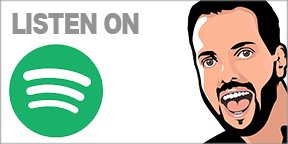
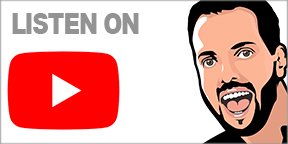





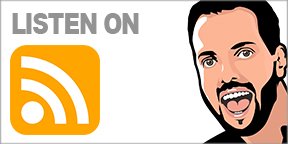
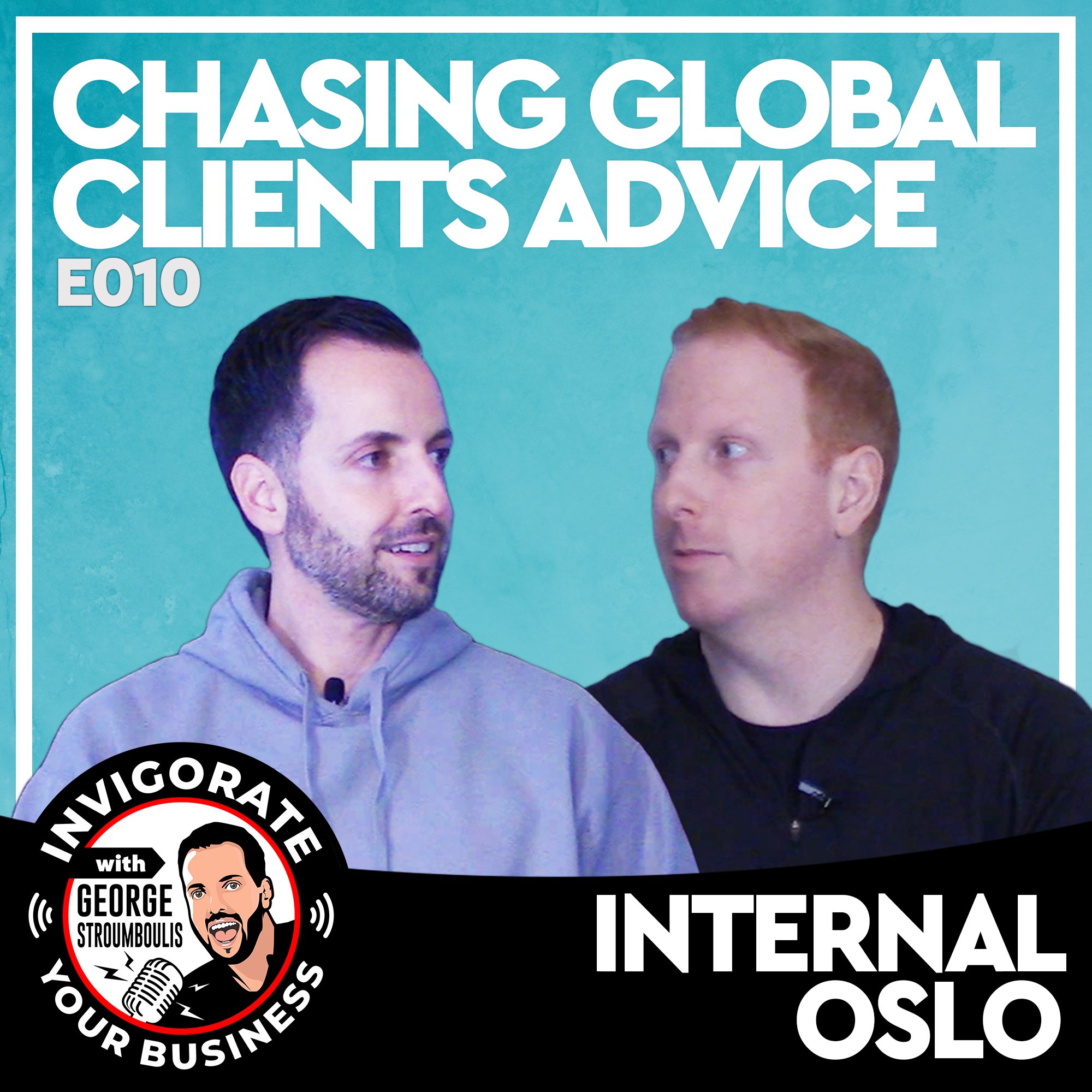
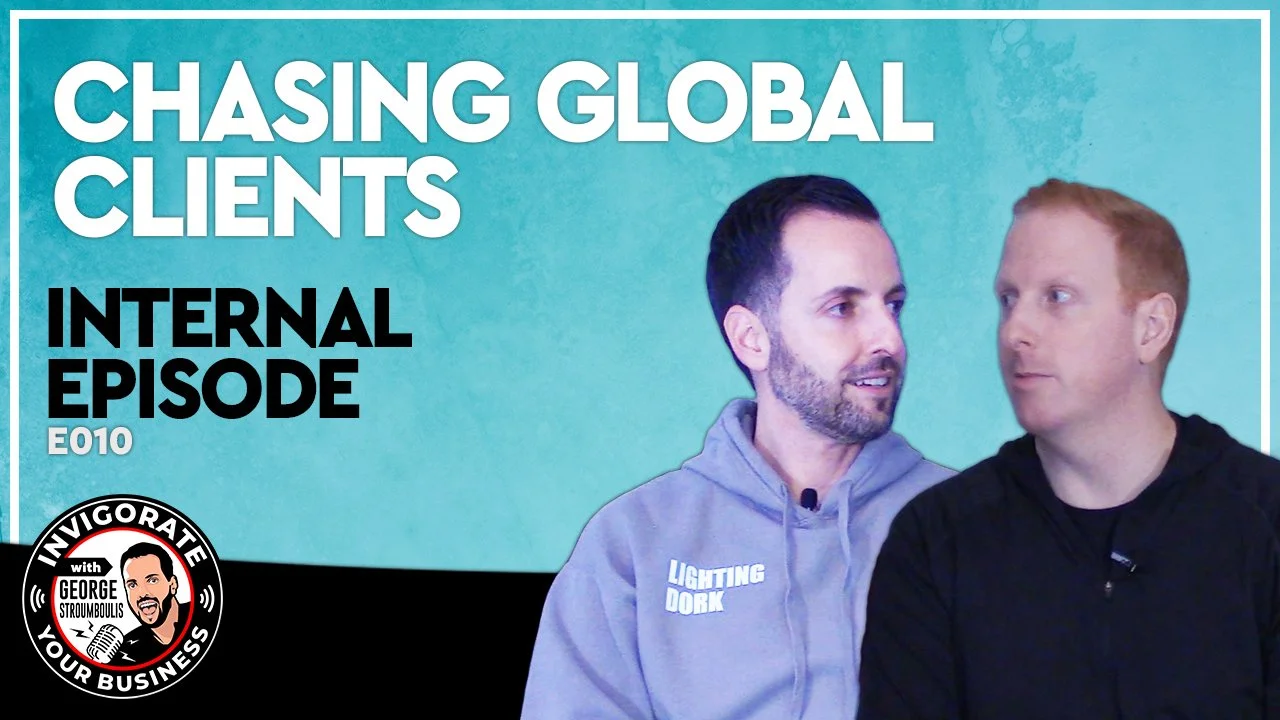
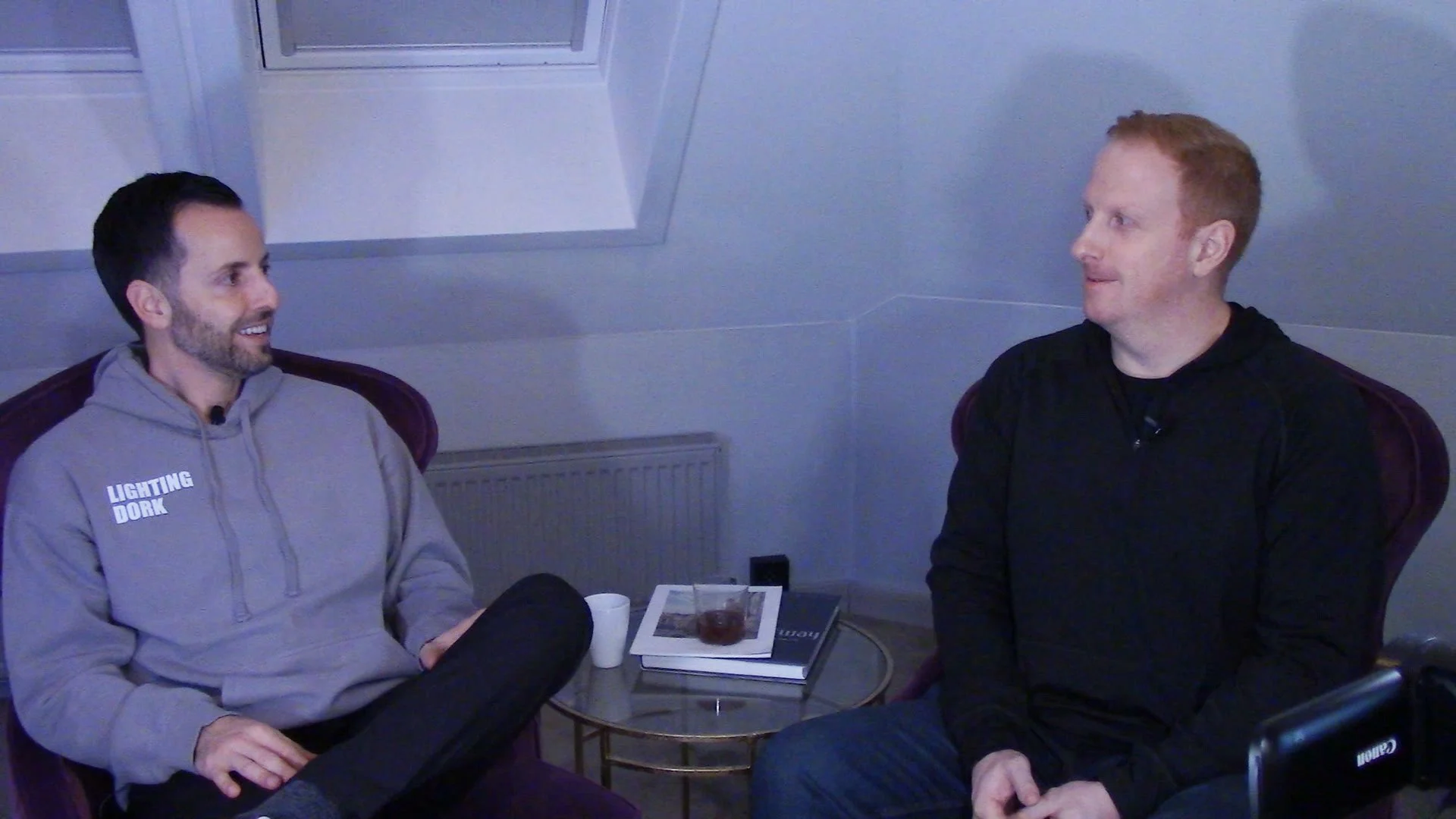
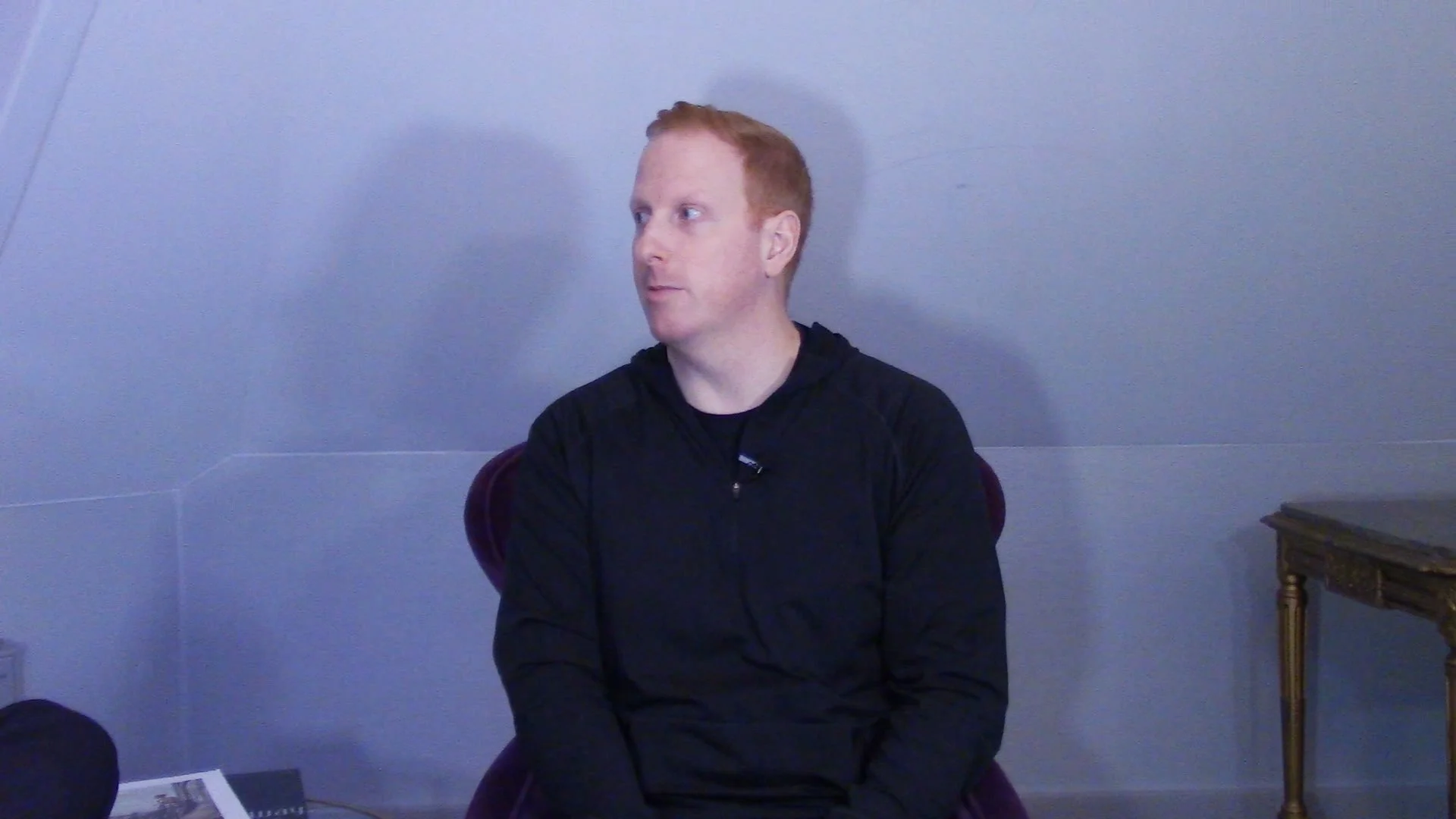
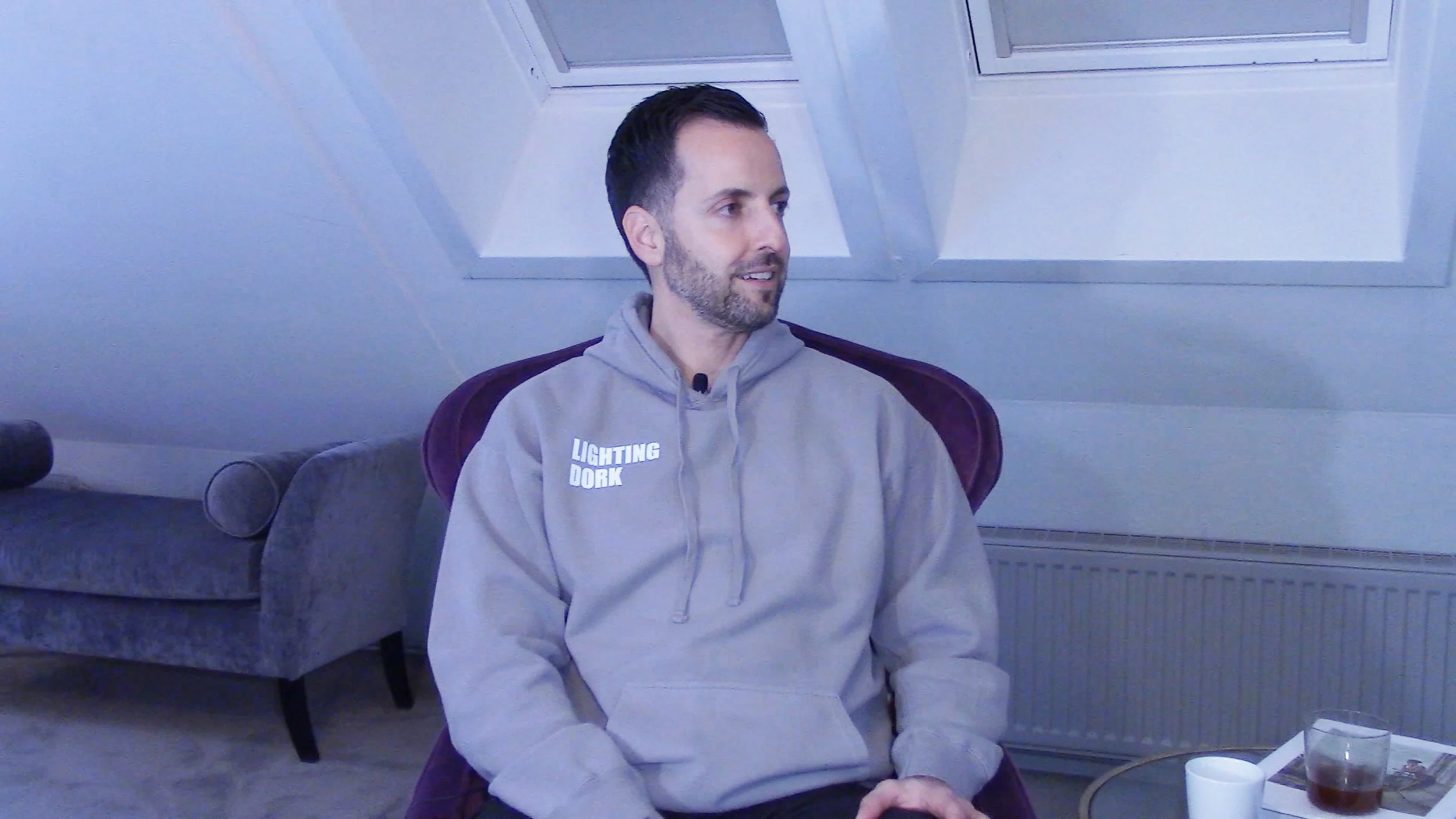
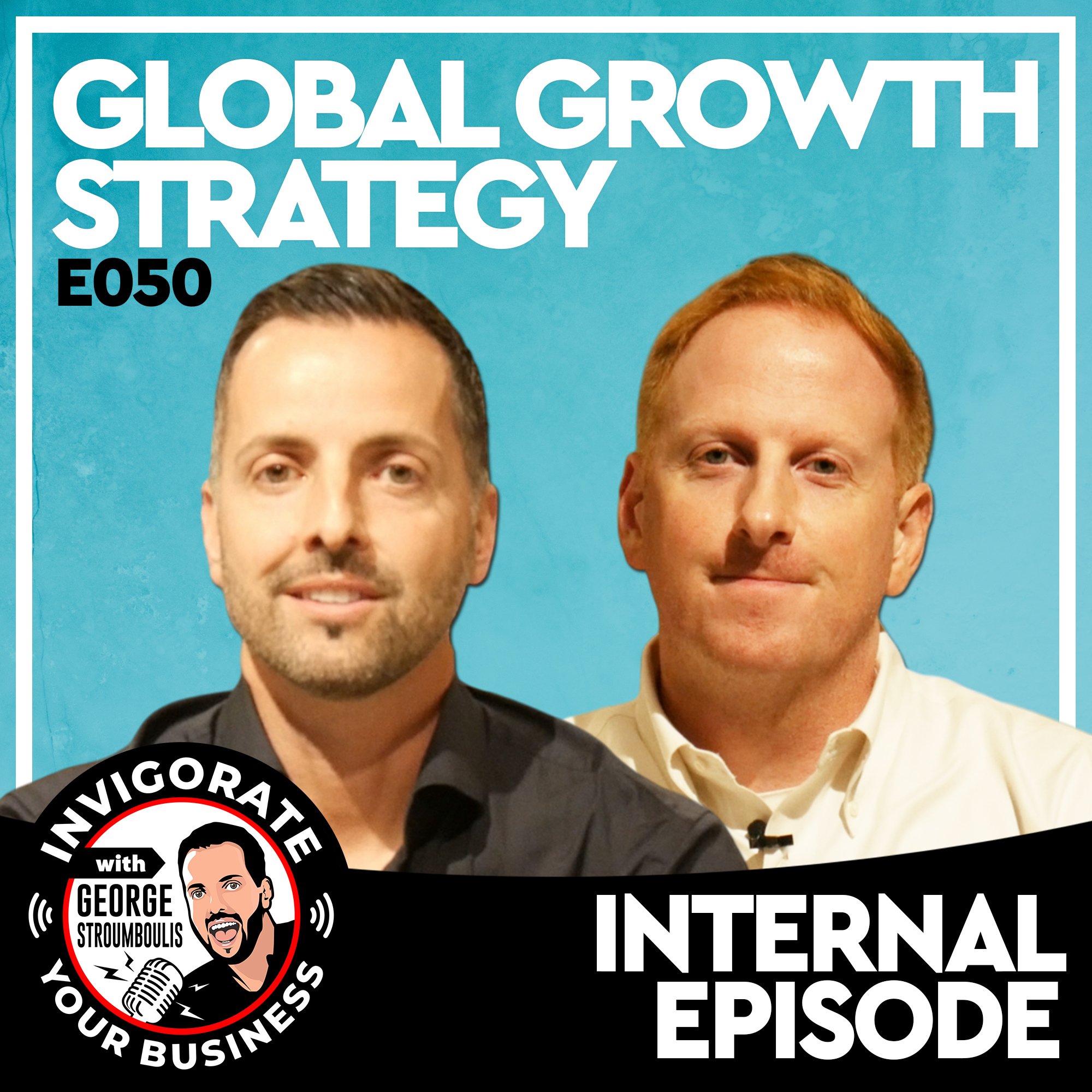

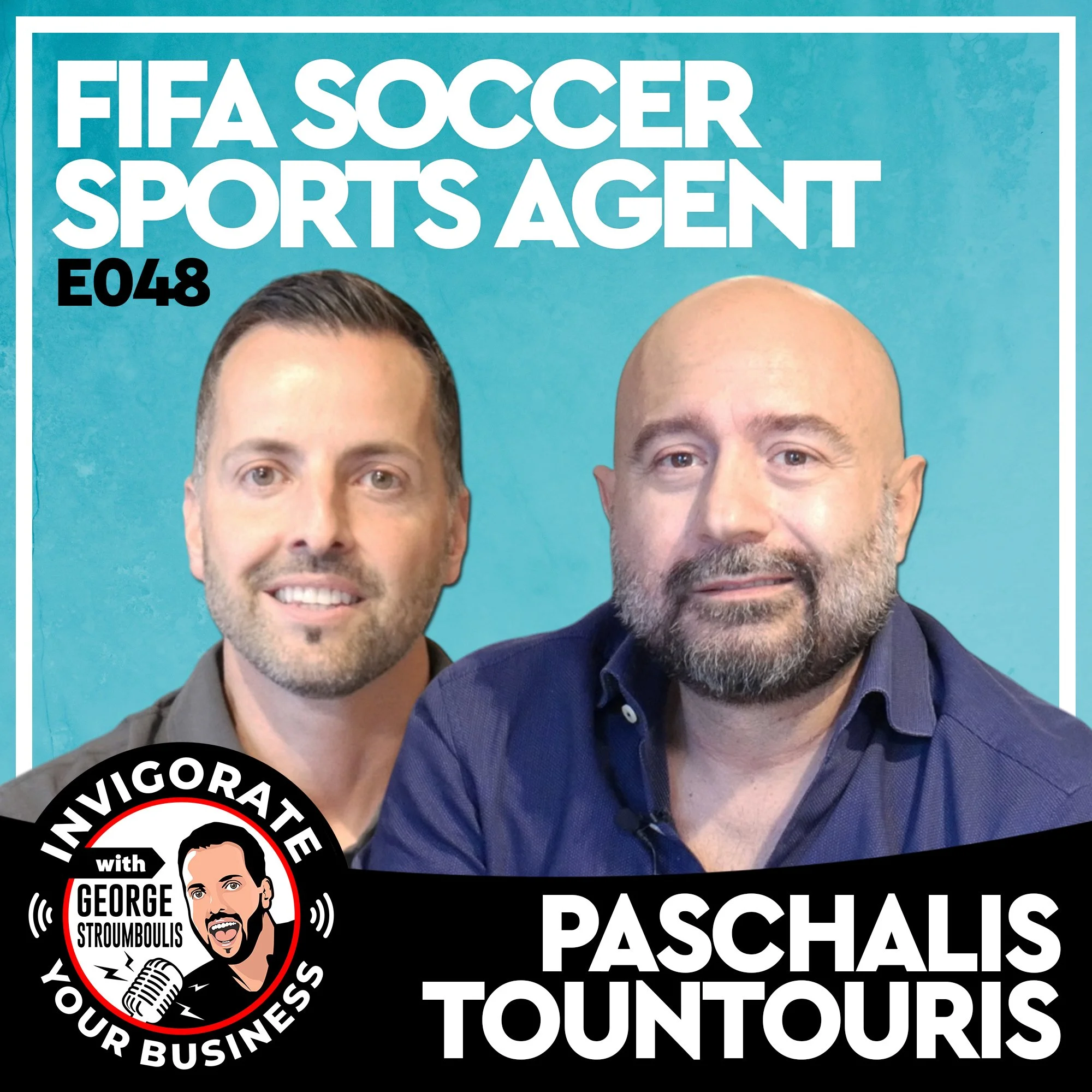
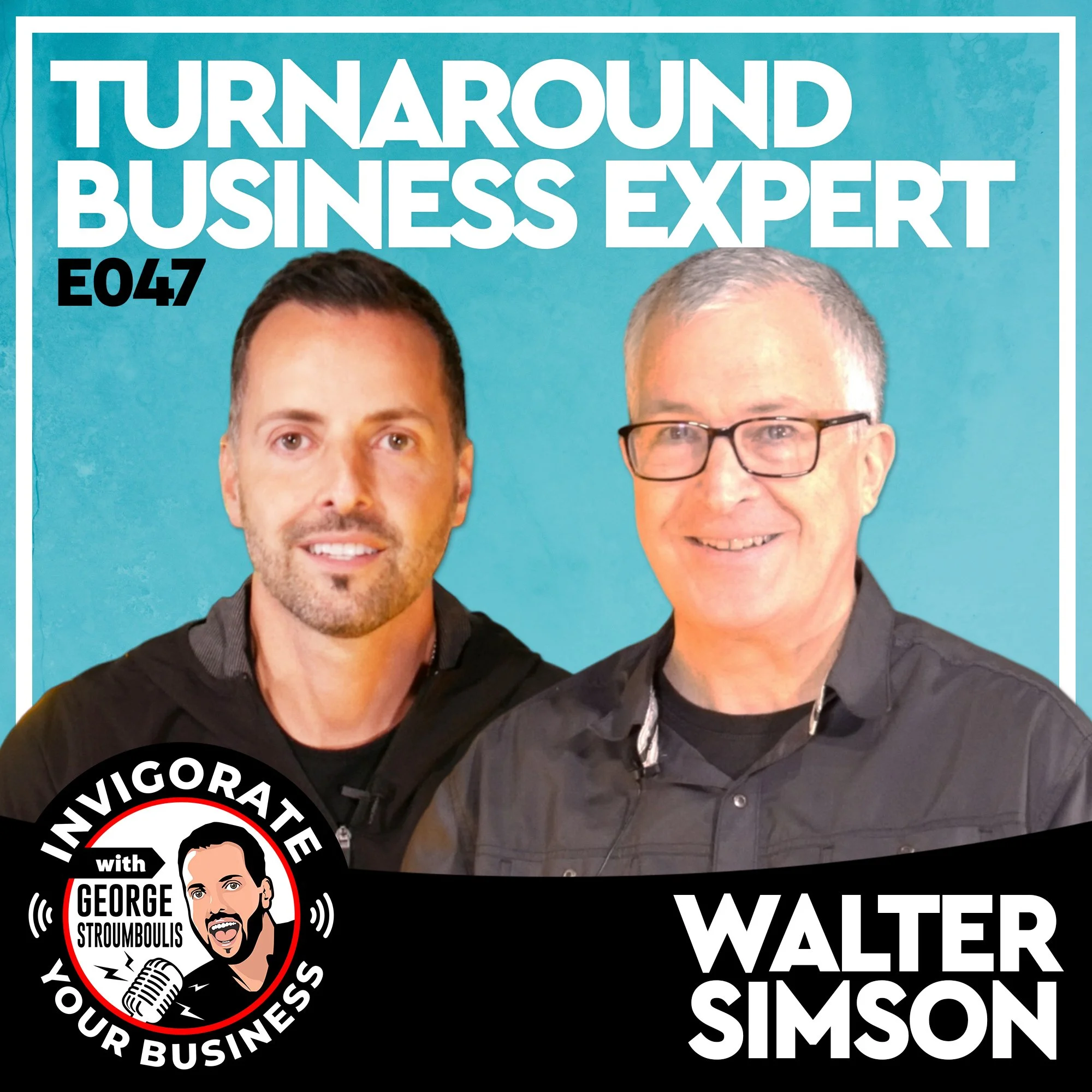
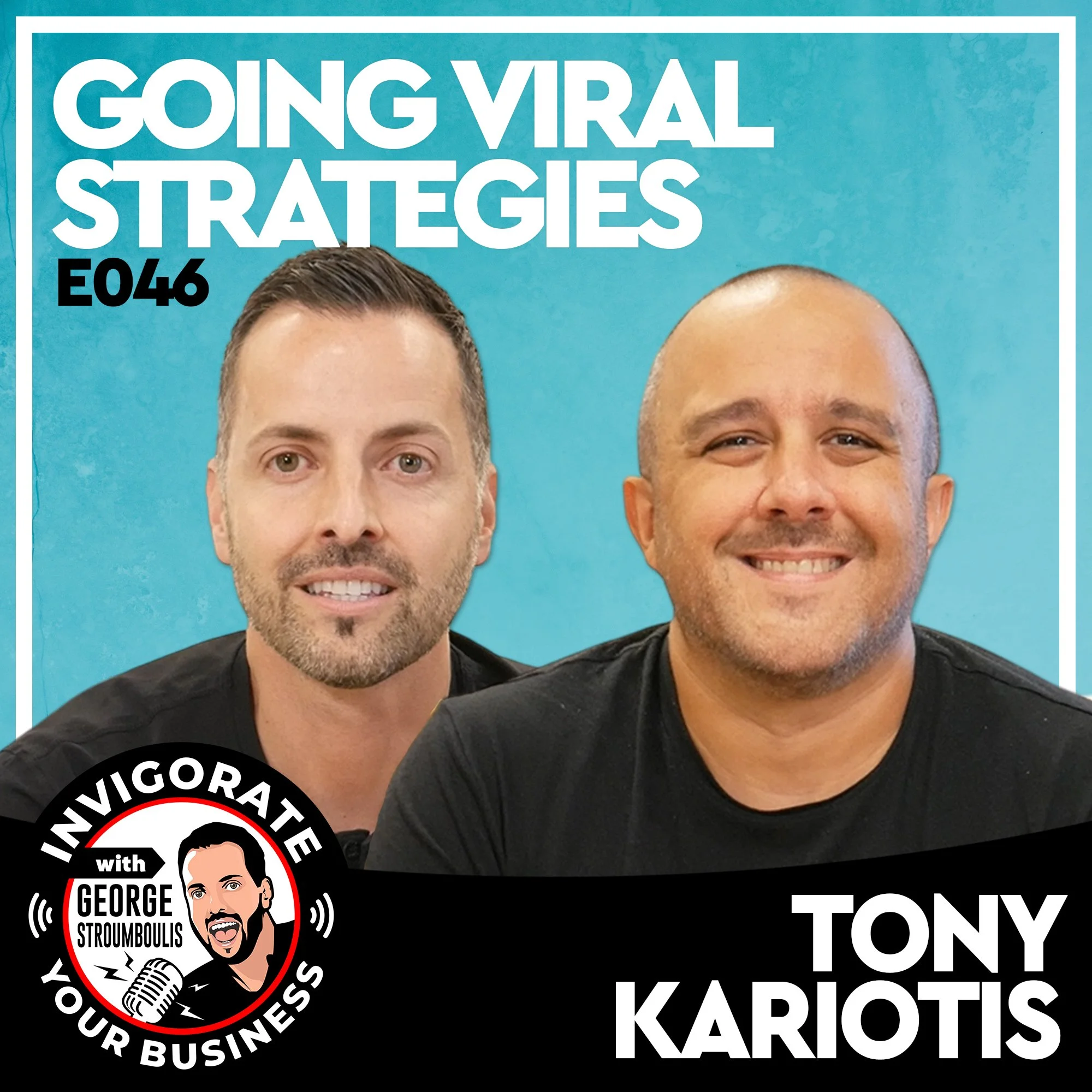

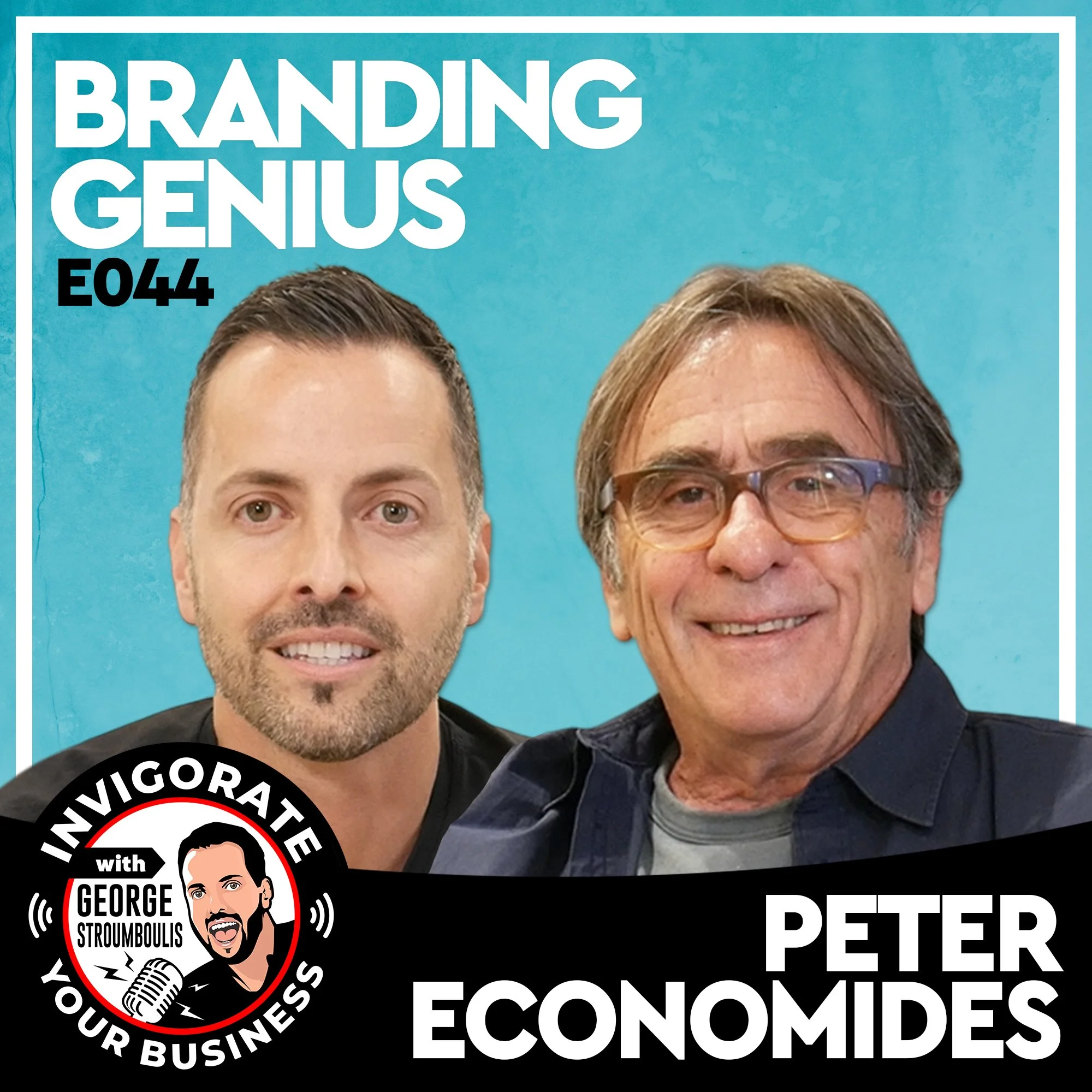
George Stroumboulis sits down with Jim Sogotis in Newport Beach, California on the Invigorate Your Business Podcast to talk about all things financial markets, investments, hedge funds, mutual funds, financial advice and so much more.